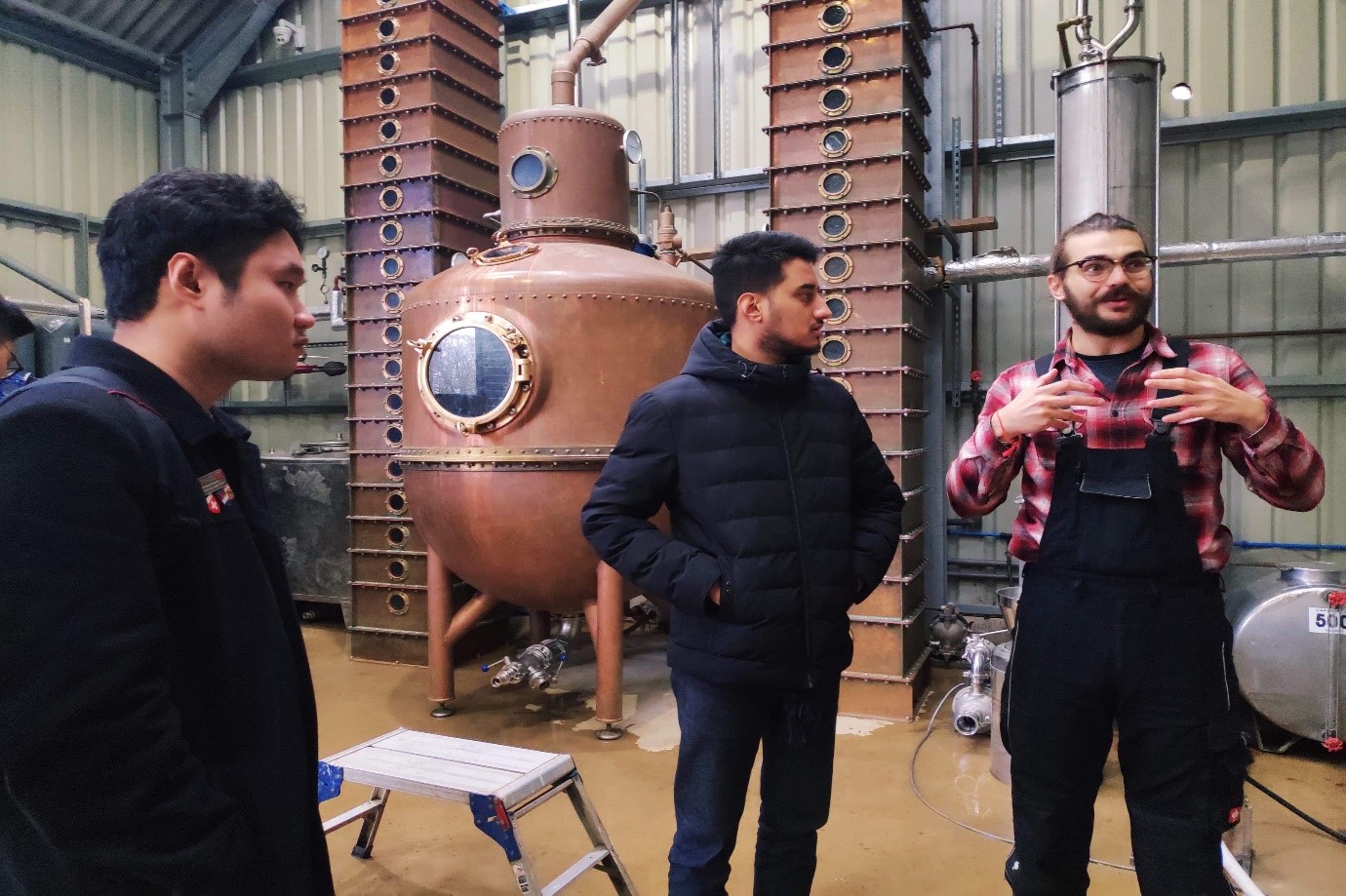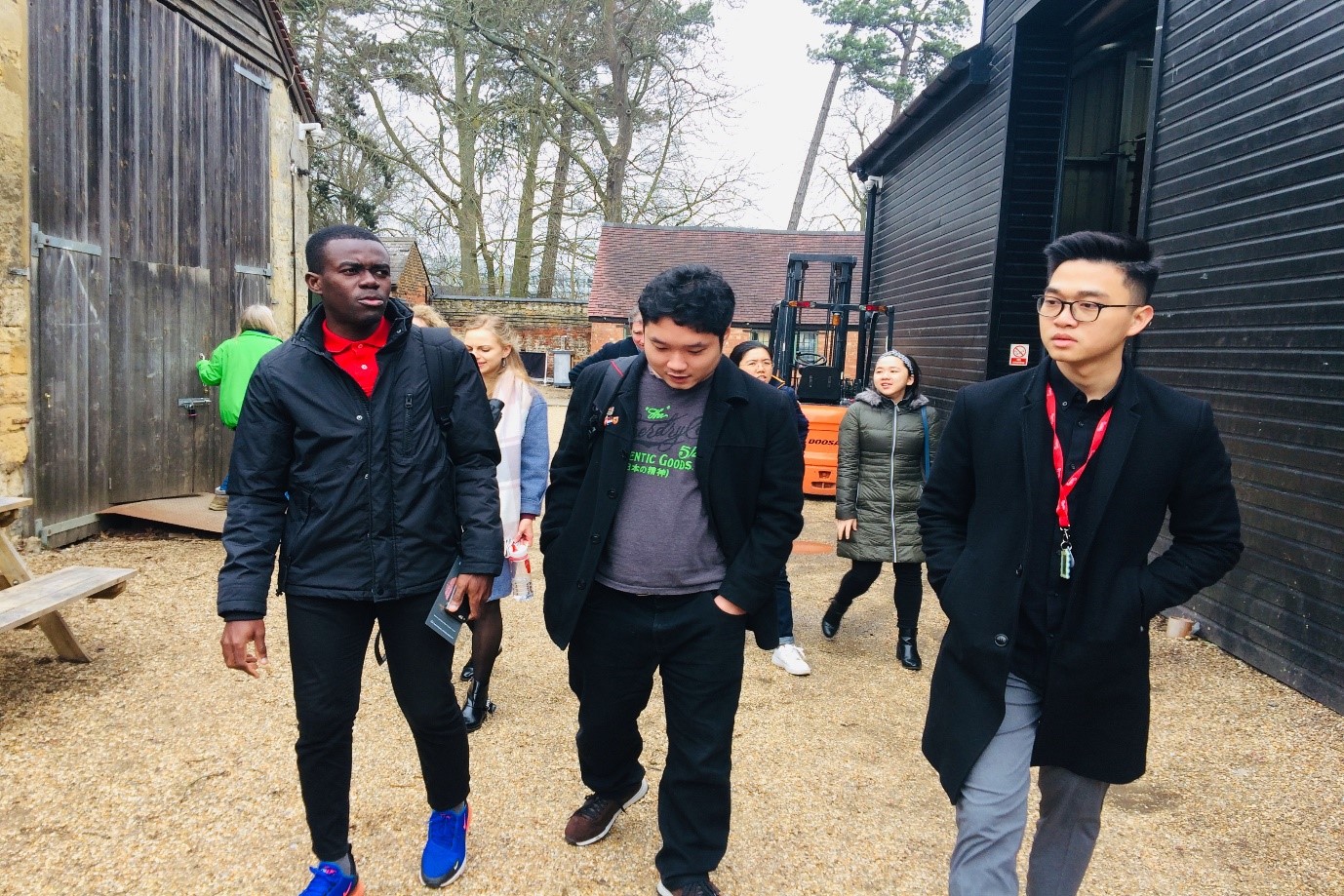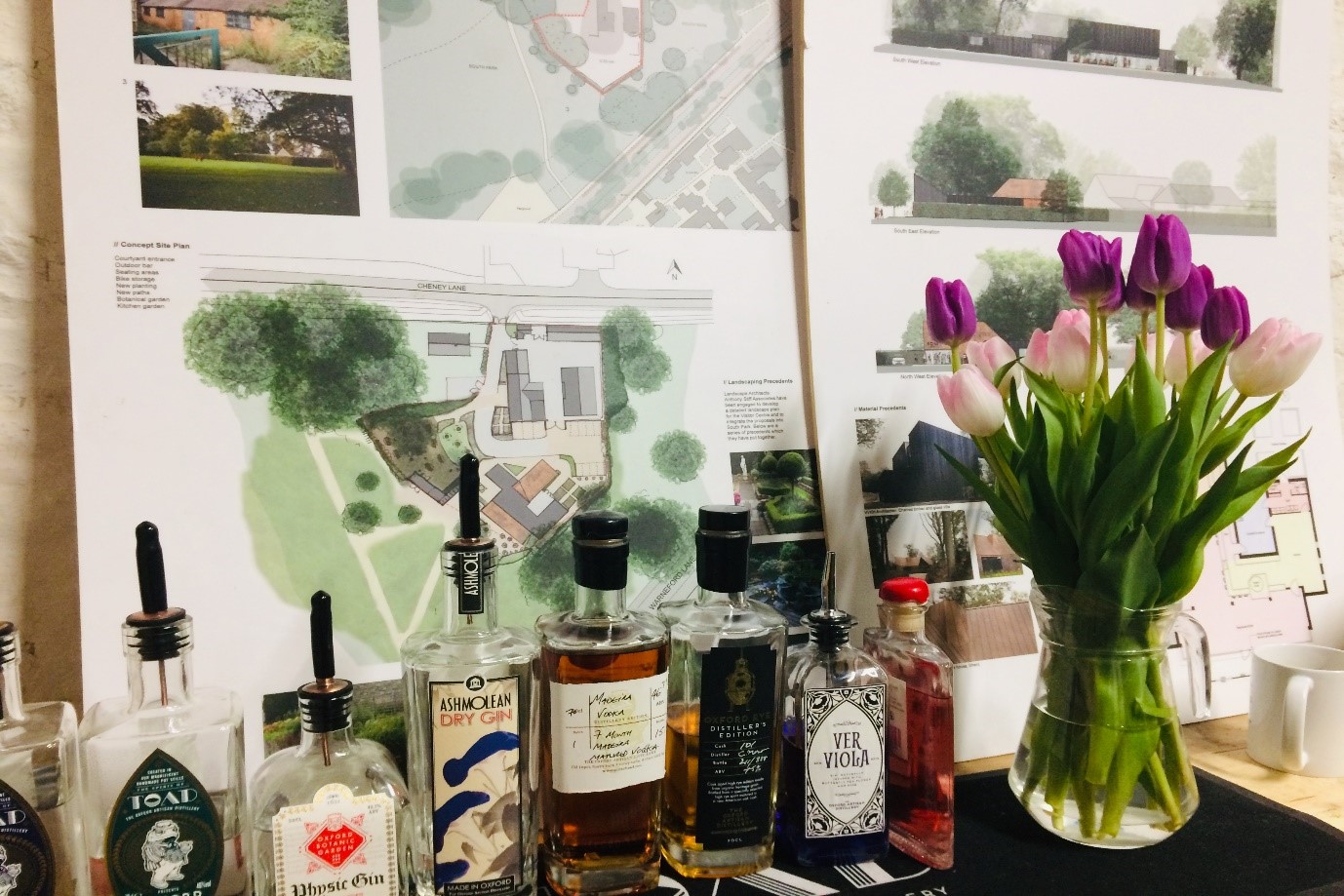11th March 2020
The green business seems to be a trend to stay! Consumers care more than ever about the environmental impact of the products they buy and companies try to incorporate, and promote, green strategies. Sustainability is a competitive advantage, besides being a huge concern, not only for each and every one of us, but specially for anyone that is thinking about creating or managing a business.
For all of this reasons, we wanted our students to have a good example of creativity associated with sustainability.

Our Master students visited The Oxford Artisan Distillery ( https://www.spiritoftoad.com/ ) a company that takes sustainability to the next level. Although is not possible to say this is a 100% sustainable business, due to the use of glass on the bottles, they claim to be a one of a kind, in a super-sustainable movement and at the pinnacle of current eco-agriculture.
The Oxford Artisan Distillery have exclusive worldwide rights to five populations of genetically diverse “ancient heritage grain”, that is grown by local organic farms, using traditional farming methods, within a 50 mile radius. Each plant in the field is different, creating a variety of plants and a crop without the need for chemicals.
Up till now, these crops have been able to respond to the challenges of natural selection and adapt to environmental shifts. They create diversity and give the viscosity and silky mouthfeel to the spirits.
TOAD claims to be the only distillery in the world to have this kind of production system. Not just ‘organic’, the diverse crop is enriching its environment.

Besides the unique perfume, there is a cinematographic dimension to this experience. They created a copper still from scratch, with the romance of steam, Victorian engineering, old diving helmets and the imagery from Jules Verne’s 20,000 Leagues Under the Sea. The magic touch. And they manage to succeed.
The rest of the story is a mixture of historical and technical knowledge, perseverance, faith in a romantic and unique project and a hint of luck, finding the right people, at the right time, along the way. Ingredients to be used in any other business recipe.

For the students this was “a good experience, getting to understand the local side of a town”, and also “how small business owners are competing with global manufactures”. They got to learn how a distillery works and the sustainability issue raised some concerns about the future: “I think they are heavily invested in sustainability, which might pose as a bit of a problem if they wish to expand in the future”. On the other hand, as another student pointed out, “it would be a problem, in the medium or long term if sustainability is not implemented as planned”. They could “either lose out to competitors who are integrating sustainable practices or modify the business plan”. They were able to discuss the transformation in the coming months “shifting their focus and output from gin and other white spirits to a whisky distillery”, as well as the use of “centuries old thatching to reproduce non identical hops, reducing the need of pesticides and chemicals. I would enjoy more distillery tours!”
With two and a half years, this is a successful story that, hopefully, will also inspire our students to create or manage other successful business stories. And, always, take it to another level.
Written by Anabela Santos


